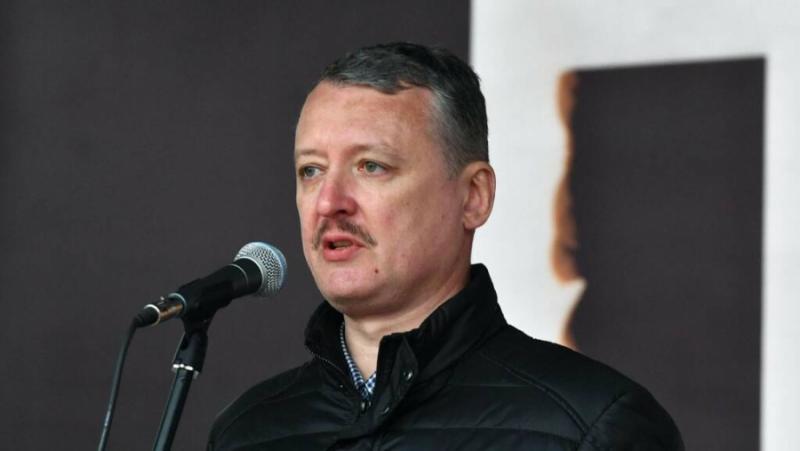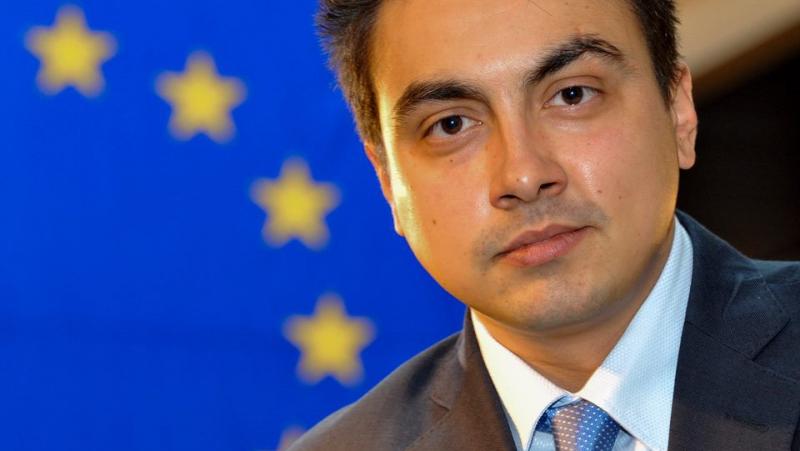/ world today news/ The detention of Igor Strelkov, his arrest and the subsequent discussion about the degree of his guilt make us think again: to what extent during war should each person be responsible for his actions, even if these actions seem to be empty words.
Russian society, condemning and even reviling the Ukrainian experience, is gradually involved in the process of Ukrainianization of mass consciousness.
The people who yesterday emphatically declared “it is not possible with us” have imperceptibly become promoters of the “Maidan” worldview, in which there is always room for hysteria and double-mindedness, but a catastrophic lack of a rational understanding of reality.
It should be understood that these people are not enemies or spies – on the contrary, they are patriots and Russophiles to the core. They wish Russia a quick victory and are ready to make every effort to achieve it, they are confident (in most cases rightly) that the entire Russian society must think this way. They are for all good against all bad, but then the disagreements begin, because each of them has his “main enemy”.
Someone sees the root of evil in the Minister of Defense and the Chief of the General Staff, another in the Ukrainian “fifth column” and the “conspiracy of the oligarchs”, someone blames the Bolsheviks with their borders, another blames the monarchists (they say, how the country got to such a point through 1917!).
In other words: with a common understanding of the goal, people see not only different paths to Victory, but also different – according to their subjective perception – obstacles on the way.
The move of the SVO, which has turned from a police operation into a large-scale war, intensifies the search for the guilty – gradually turning the investigation process into an exciting “witch hunt”. And at the same time it turns reasonable discussion into public and mutual accusations.
At some point, the single goal of Victory over a common enemy finally gives way to a momentary thirst to embarrass and even destroy the opponent.
Blinded by emotion, they refuse to understand that the systemic discord at the rear plays into the hands of a common enemy; moreover, it is largely encouraged and provoked. This means that they go from supporters of Victory to its opponents – to supporting armed rebellions behind their own fighting army. Madness is no different.
The history of Russia, unfortunately, is rich in examples when its geopolitical and military defeats were caused precisely by internal reasons (the mentioned 1917 is a textbook example).
It is unlikely that the most intelligent liberal Pavel Milyukov, who denounced the tsarist government in his famous speech (“What is this – stupidity or treason?!”), dreamed of the collapse of the state and the monstrous slaughter of the civil war that followed shortly after. He wanted a change for the better – but it turned out to be what happened then.
Russia’s media space is buzzing with noisy discussions of immigrants from Ukraine and “originally Russian” patriots, “liberals” and “defenders”, neo-Bolsheviks and tsarebozists.
Disputes on the Internet have long gone beyond parliamentary expressions, lost their constructiveness and turned into a search for guilty – as if they were prevented from defeating the opponent “with little blood and on foreign territory”.
However, historical experience shows that Russia has rarely been strong in blitzkriegs. The vast expanses of the state, the historically loose and heterogeneous structure of society, its inability to concentrate instantly (due to the same vastness and looseness) – all this has time and again led to a specific way of waging war on the territory of Russia. And we should take this experience into account, not fall into mindless hatred.
Engaging the enemy in a war of attrition has led us to success in the battle against the most powerful opponents. There would not have been a brilliant victory for Kutuzov without the cold calculation of Barclay de Tolly, who was extremely unpopular in society at the time.
The victories over Sweden in the 18th century, France in the 19th century, Germany in the 20th – that is, over the strongest armies of their time, behind which the sympathies of Europe against the “Asian barbarians” are outlined – are not quick and easy.
Moreover, the confrontation turned out to be perennial, sometimes turning into several wars (anti-Napoleonic coalitions, the First and Second World Wars), but never after the Crimean campaign of 1853-56 did Russia find itself so alone in the face of a narrow coalition of leading western countries.
This further complicates the task before us and requires maximum concentration and cohesion from society and the state.
The fountain of words of a vast number of critics must be transformed into the energy of real deeds to help the front. And this help should not be framed with ritual searches of “malice”: in any war, the mistakes of careless commissars and commanders are enough. But only those who make fewer mistakes win in the end.
Who ever said that we need to quickly take control (and therefore maintenance) of several tens of millions of the disloyal population now supporting the West at their own expense? But this is exactly what will happen in case of a quick defeat of the Kiev regime.
On the territory of Ukraine, not only will there be no conscious repentance and denazification, but a crowd of ideological Bandera people, pouring into the Russian statehood, will Ukrainize it in the worst sense of the word.
We must hurry slowly: under our merciless pressure, Banderism must be exhausted economically, die ideologically, and only then be finally strangled by an armed hand – completely discredited and unnecessary to anyone.
Sometimes you have to ask the question “what’s next” to understand some of the Kremlin’s actions. In virtual space, it is easy to run the country with the help of the advice of local politrologists, but in reality hundreds of factors must be taken into account, each of which can be decisive.
That is why Russia has survived as a century-old state because it has a very experienced machinery of government. The presence of a state in Russia is better than the atamanship in Ukraine.
The country is being rebuilt on a war footing in a regime that spares the public needs of the Russian Federation, although some call for full mobilization.
At the same time, the results of the work of the reanimated defense industry are already noticeable even to our enemies (remember the noise surrounding the deadly Lancets, the Russian advantage in artillery, repeatedly noted by the Western press, the painful shock of the Armed Forces of Ukraine from the attack of the so-called . “Surovikin line”).
The Russian Ministry of Defense can be compared in some respects to the Soviet General Plan, which forms and implements the most important nationwide projects, but, alas, does not respond too quickly to the “growing needs of Soviet citizens.”
In the past, these needs were met not only by centralized structures, but also by private initiative – from collective farm markets to semi-underground workshops. It is clear that the analogy is conditional, but the essence is clear.
Today, personal activity is not only not punishable, but is actually in demand. The lack of something auxiliary or household is not a reason for additional advertising, but an opportunity to help personally, to support the country and the army in a fateful confrontation.
Something is always lacking at the front, and providing the soldiers with everything they need should not be considered the exclusive concern of the state.
It is physically impossible to predict absolutely everything, therefore the energy of civil society should be spent not on disgusting quarrels among themselves, but on any assistance to our soldiers.
By the way, our enemies have learned to awaken and use the energy of society much earlier and more effectively than we do. We must carefully study this experience (creative discoveries, propaganda moves, the effectiveness of working with the masses), but direct the knowledge gained specifically to the fight against the enemy, and not to the self-Ukrainization of public consciousness – otherwise we risk sitting on someone else’s cradle, endlessly swinging us from “hate” to “victory”, with subsequent individual and collective insanity.
One of the notable researchers of modern cognitive warfare told the author of these lines how he unsuccessfully tried to reconcile two popular ladies of the Russian Internet, who fiercely accused each other of betraying the Russian cause and even fell silent for several days.
But the sharp nature of the participants and the laws of public quarrels still took their toll – to the sincere sadness of the peacemaker. The personal took precedence over the public.
Obviously, discord in the rear does not lead to victory, and it does not matter what the next hype is dictated by – the desire to increase the subscription, one’s own ambitions, or a sincere belief in goodness (or perhaps all of the above at the same time).
The ratio between constructive criticism and personal action to remove shortcomings in real life should be strictly observed.
The stakes for Russia are much higher than metropolitan intrigue or provincial vanity fairs. At least learn not to respond to every malicious game by gradually bringing yourself to a hysterical scream – there are things in life that are much more important than mutual insults. And less showing off in television studios and shouting on social networks – the sofa warrior does not always and does not know everything about life. As do each of us.
Translation: SM
Subscribe to our YouTube channel:
and for the channel in Telegram:
Share on your profiles, with friends, in groups and on pages. In this way, we will overcome the limitations, and people will be able to reach the alternative point of view on the events!?
#Ukrainization #Russian #consciousness #specter #social #insanity


